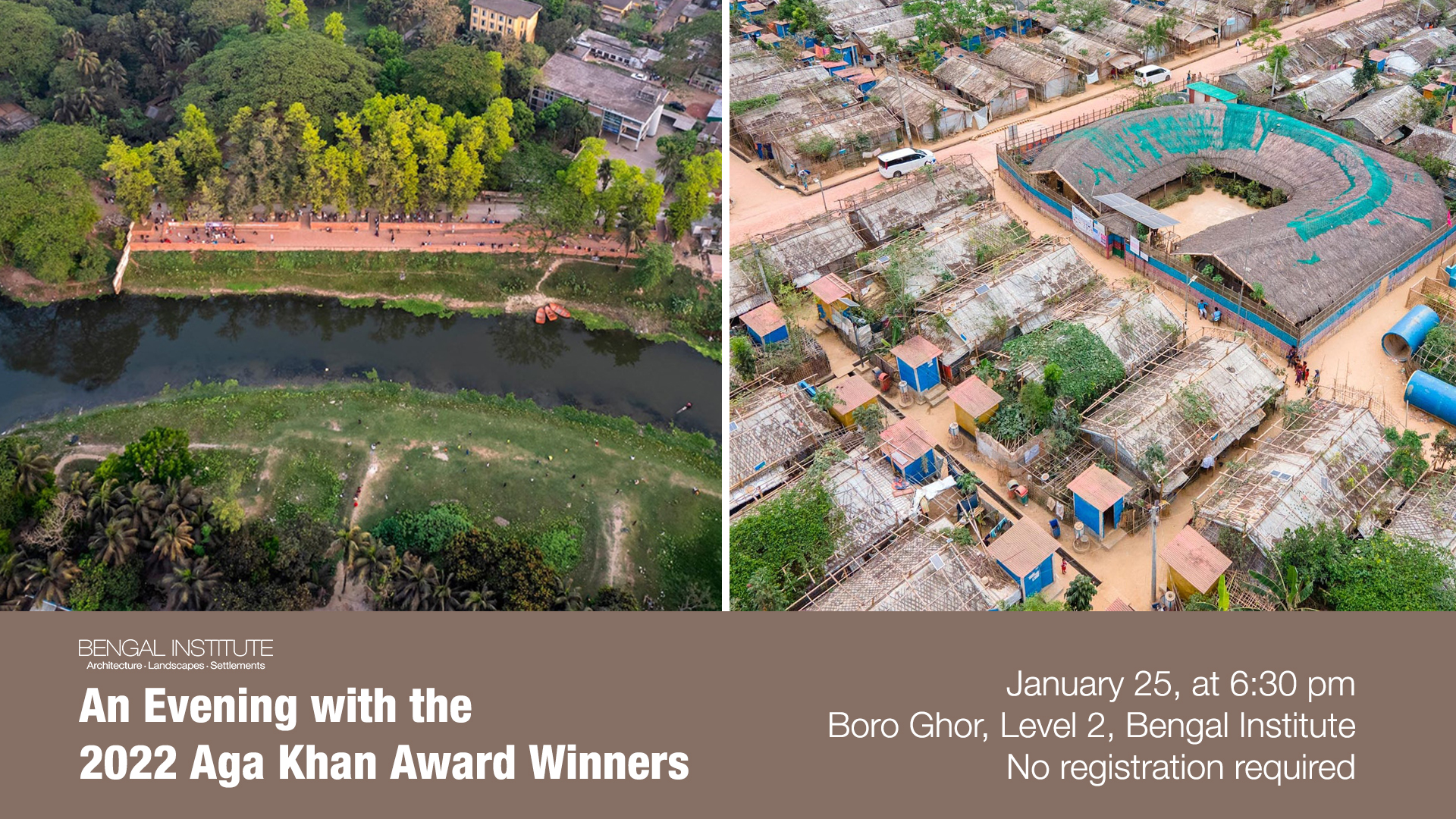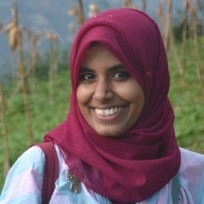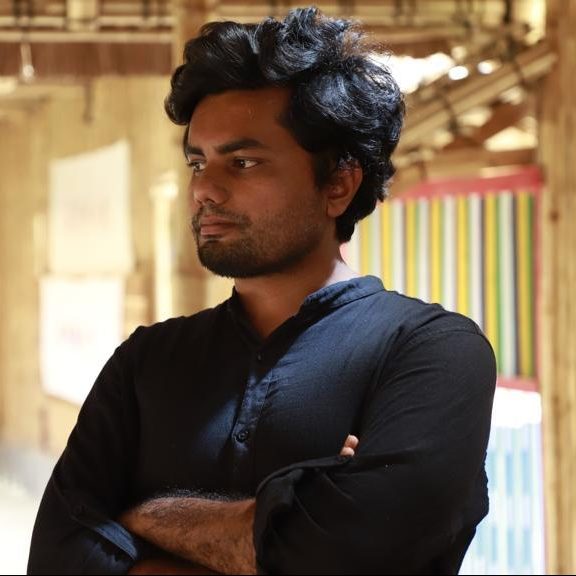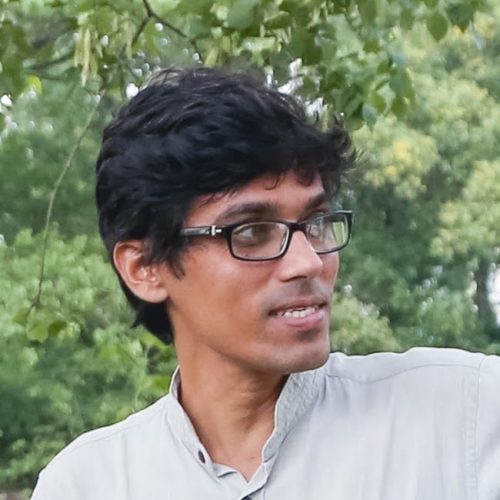
An Evening with the 2022 Aga Khan Award Winners
Wed 25 Jan - Wed 25 Jan' 23
In 2022, for the third consecutive cycle, two projects from Bangladesh — Urban River Spaces in Jhenaidah and Community Spaces in Rohingya Refugee Response, Cox’s Bazar — won the prestigious Aga Khan Award for Architecture.
Bengal Institute is pleased to invite the teams involved with the two award winning projects for presentations and discussions on January 25, at 6:30 pm at Level 2 of Bengal Institute. The program will be moderated by Salauddin Ahmed.
Anyone is welcome to attend this event.
Title of the Presentation: Co-creation with Human and Non-human Communities
Nature co-creates. We all co-create whether we are aware about it or not. It makes a difference when we are conscious about it. This sharing session intends to discuss the process of co-creation in the field of architecture and landscape in Jhenaidah city.
Speakers:
Khondaker Hasibul Kabir introduces himself as a community architect and is the co-founder of Co.Creation.Architects that works with human and non-human communities to co-create better built and natural habitats. He is a core team member of Platform of Community Action and Architecture (POCAA) that works in Bangladesh and Community Architects Network (CAN) that works in 19 Asian countries. He teaches landscape and architecture at BRAC University, Bangladesh. Kabir has a bachelor’s degree in Architecture from Bangladesh University of Engineering and Technology and a Master’s in Architecture in Landscape Design from the University of Sheffield, UK.
Suhailey Farzana is a community architect. Her interest is to understand and explore the “co-creation” process with people; be it housing, craft making, or city planning. She is the co-founder of Co.Creation.Architects and Platform of Community Action and Architecture (POCAA). Suhailey is also closely involved with Asian Coalition for Housing Rights (ACHR) and Community Architects Network (CAN). She pursued her Bachelor of Architecture and Masters in Development Studies from BRAC University, Bangladesh.
Together they received the UIA 2030 award and Aga Khan Award for Architecture in 2022 for their works by the river in Jhenaidah city, Bangladesh.
Title of the Presentation: Community Spaces in Rohingya Response
Three architects – Saad Ben Mostafa, Rizvi Hassan and Khwaja Fatmi have worked in the emergency response for the Rohingyas who fled persecution in Myanmar. They worked on different projects which have diverse cultural, political, psychological, social, economic and technical challenges. Their works are a series of exercises on responding to difficult situations as architects. In this presentation, they will talk about their work in the Rohingya response.
Speakers:
Rizvi Hassan is a Bangladeshi architect. He graduated from Bangladesh University of Engineering and Technology in 2017. As a professional in the architecture field, he finds his views and perspective molded on many levels. But stepping outside and rethinking the design process has been an important cycle as it has provided the freedom to reorganize perception from both outside and within the boundaries. It has taught him to follow what is necessary as well. He has worked with Archeground Ltd. , EK Architects, Co.Creation Architects, Humanitarian Crisis Management Programme (HCMP)-BRAC and IOM -UN Migration.
Khwaja Nuzhat Zerin Fatmi is an architect with a passion to work with and for human and non-human communities. She graduated from Bangladesh University of Engineering and Technology in 2017. She has previous experience of working with lower income and distressed communities in rural areas. She has also worked with SILT Architectural Consultants, Dhaka, Co.Creation.Architects, Jhenaidah (Aga Khan Award for Architecture Winner 2022 cycle) ActionAid Bangladesh, IOM -UN Migration, NGO Forum etc.
Saad Ben Mostafa is an architect, who graduated from Bangladesh University of Engineering and Technology in 2017. He has a focus on context-aware design of architectural projects, hands-on experience of local materials and construction techniques, community engagement and people-led design process, and a good understanding of local ecology and landscape. He has worked with Form 3 Architects, Humanitarian Crisis Management Programme (HCMP)-BRAC, Oxfam GB, FACE Bangladesh etc. Currently he is working as Assistant Architect in the Department of Architecture, Ministry of Housing and Public Works, Government of Bangladesh.
Publication









